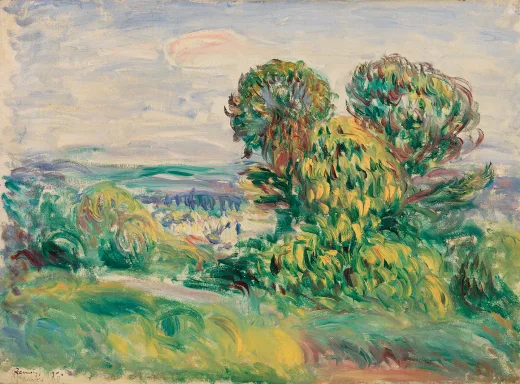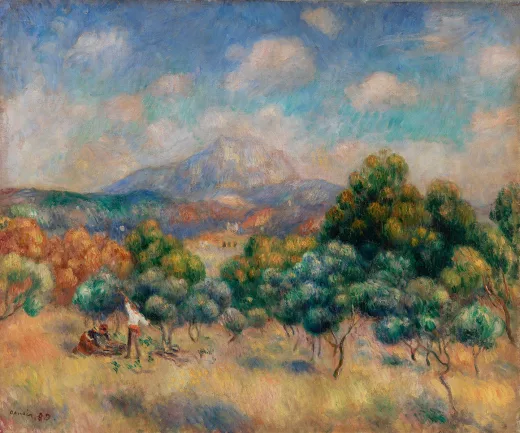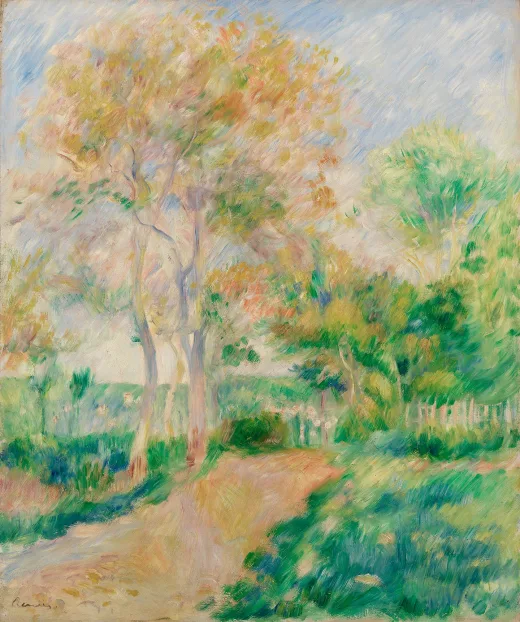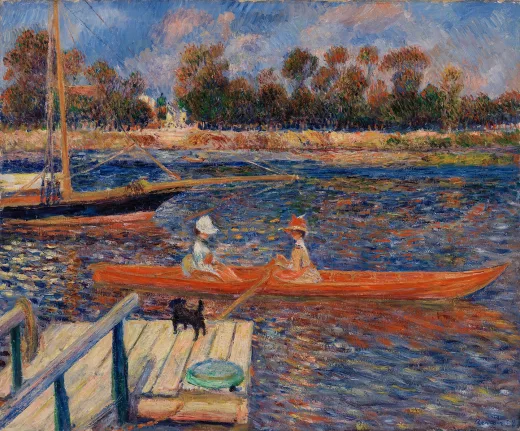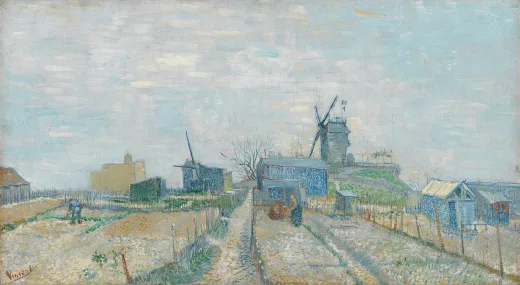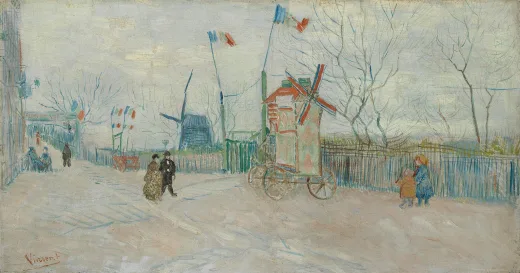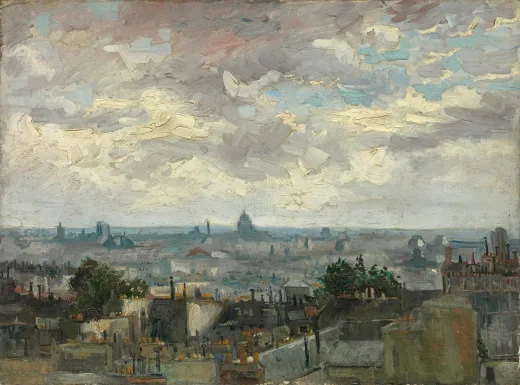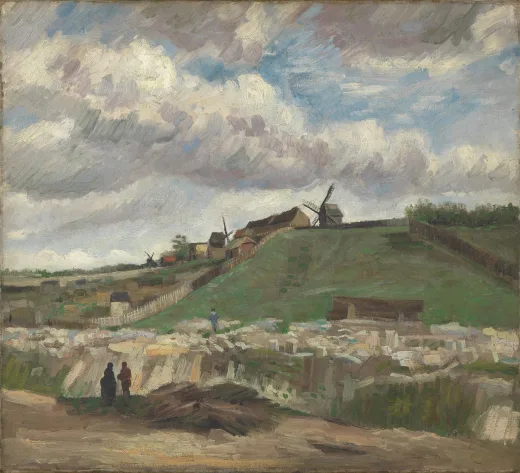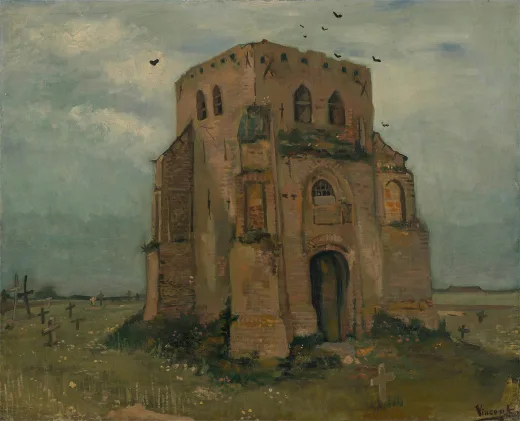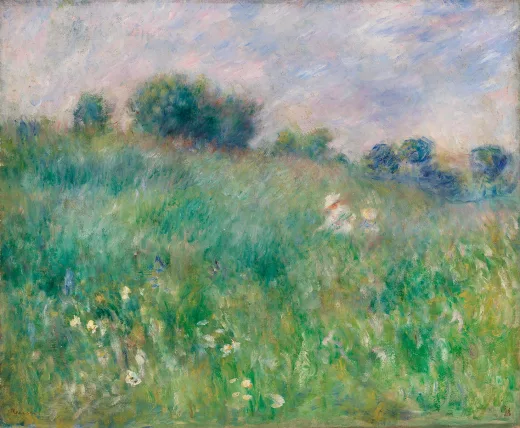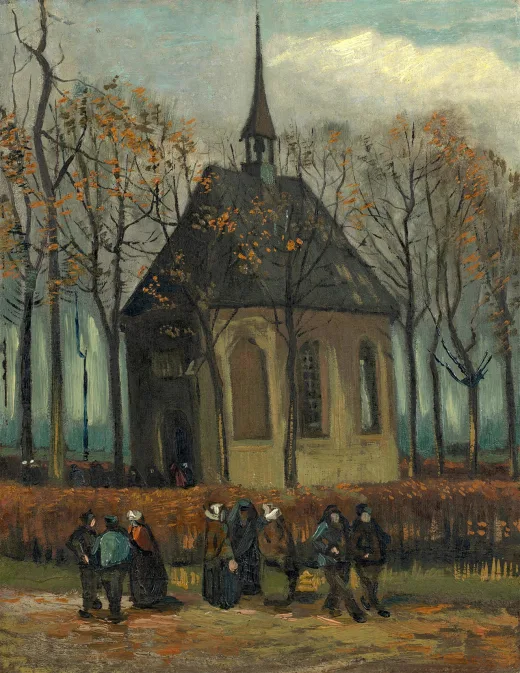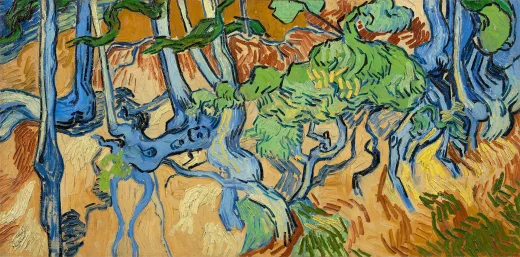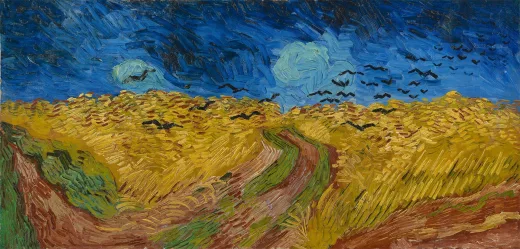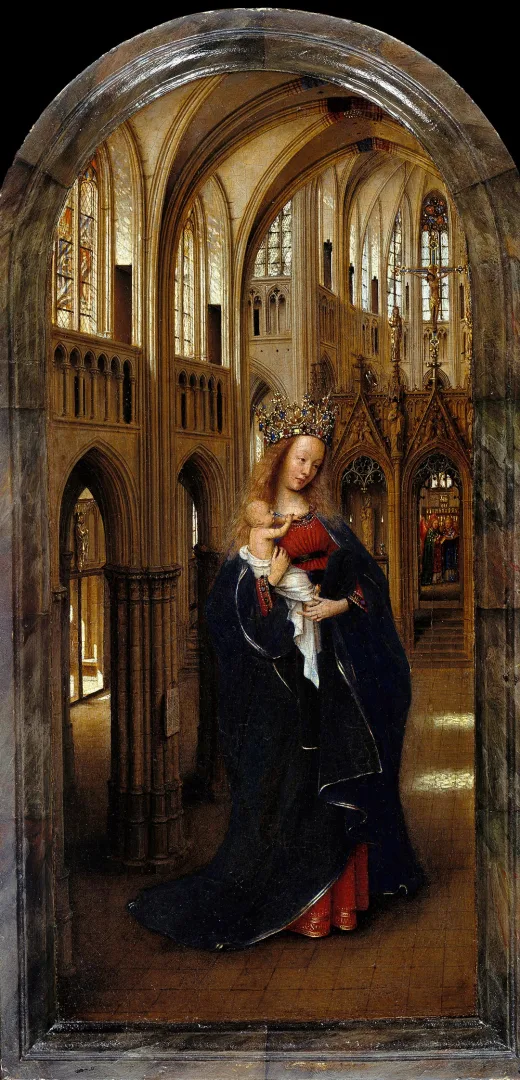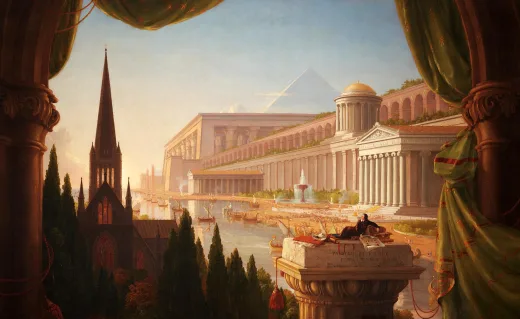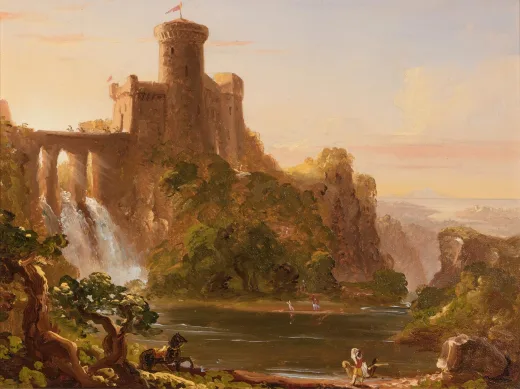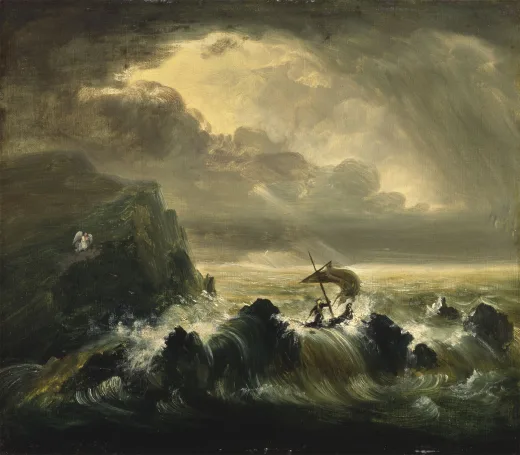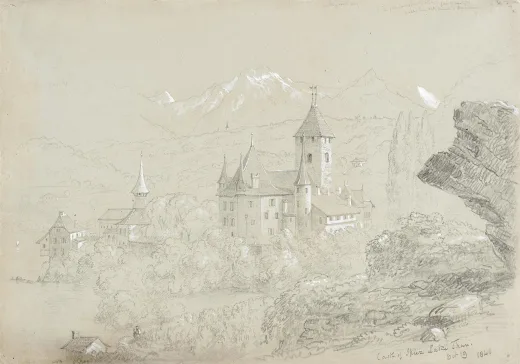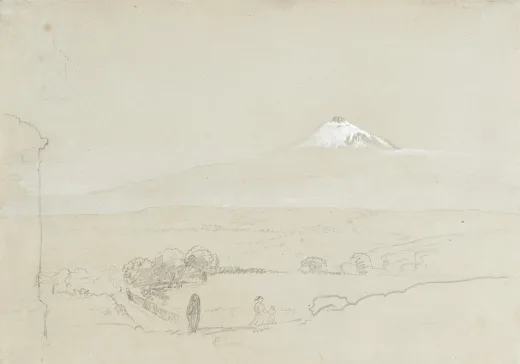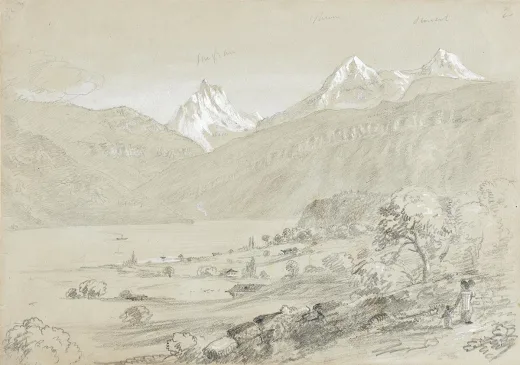托马斯·科尔油画作品《帝国兴衰录:鼎盛时代》高清图片
原图尺寸:5478×3713像素(72 DPI)高清图
下载原图消耗2艺点
文件大小:34.50 MB
下载格式: ZIP ( PNG+ JPG )
作品名称:帝国兴衰录:鼎盛时代
The Course of Empire: The Consummation of the Empire
作品作者:托马斯·科尔(Thomas Cole)
创作时间:1836年
作品风格:浪漫主义
原作尺寸:193x130.1厘米
作品材质:布面油画
收藏位置:纽约历史学会
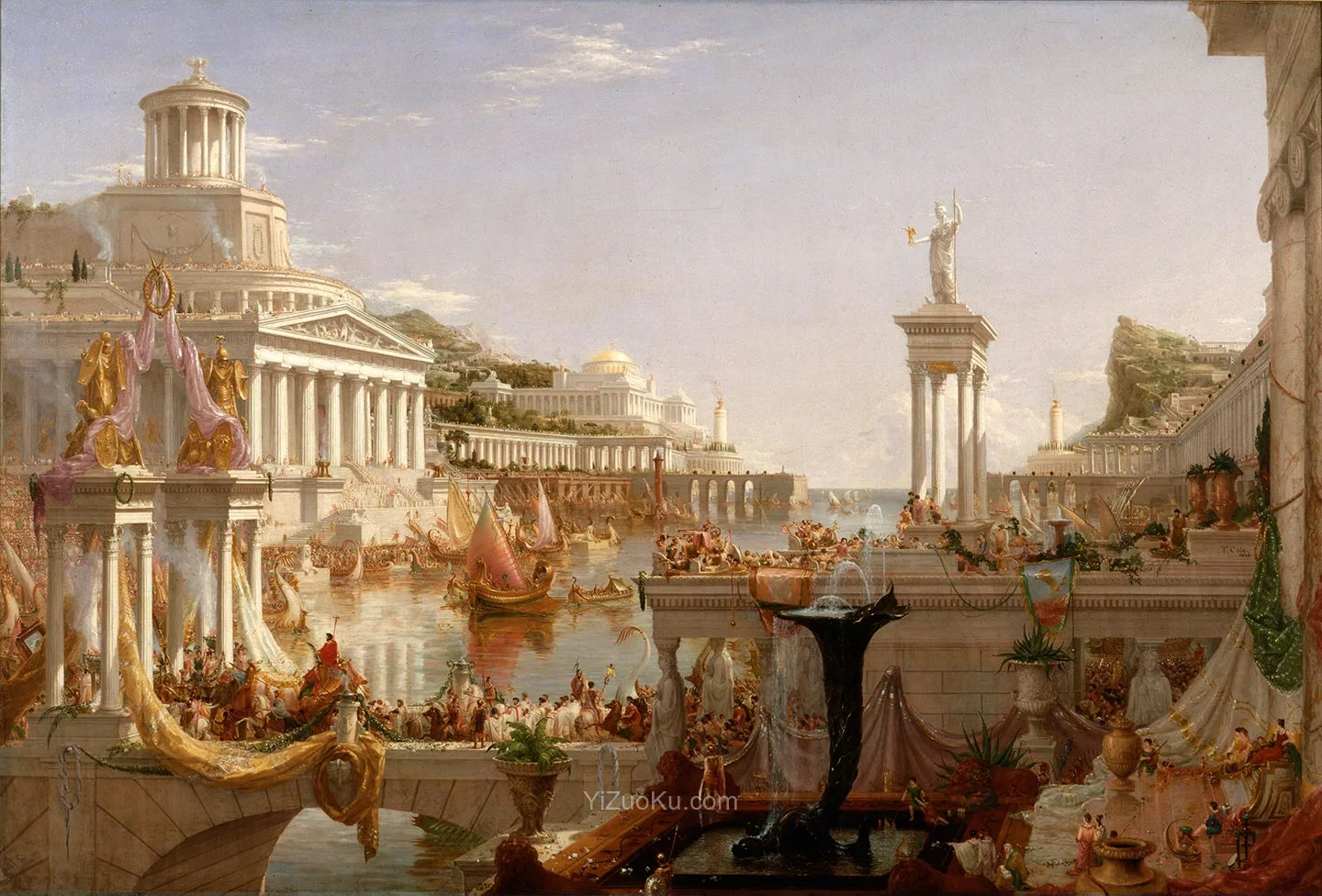
作品简介
19世纪20年代末,以哈德逊河风景画崭露头角的托马斯·科尔,早已怀揣更宏大的艺术抱负。1827年萌芽的构思历经数年酝酿,最终在赞助人卢曼·里德支持下,于1833-1836年间完成五联巨制《帝国兴衰录》。作为系列第三幅,《鼎盛时代》展现虚构文明达到权力巅峰的瞬间——新古典主义柱廊与穹顶构筑的的都城里,身着彩袍的民众正簇拥着军事统帅游行过凯旋桥。右侧智慧女神密涅瓦雕像被狂欢人群漠视的细节,暗喻理性精神的式微。
科尔通过这组寓言式作品,既回应美国刚摆脱大英帝国的时代情绪,又对工业文明侵蚀自然发出预警。画面中精心修剪的盆栽植物象征着被驯服的自然,与后续《毁灭》《荒芜》两幅中蔓生的野生植被形成尖锐对比。艺术史学者詹姆斯·T.卡拉布雷斯指出:"科尔用罗马式建筑堆砌的黄金时代,实则是覆灭的倒计时沙漏。"
1830年代中期,科尔凭借此系列将风景画提升为承载历史哲学的表达媒介。他对文明兴衰的视觉诠释,既吸收了欧洲新古典主义的形制(如1829-1832年欧游研习的成果),又注入独特的美国精神——既是对年轻共和国崛起的礼赞,更是对"天定命运论"狂热者的清醒剂。正如1842年他在《美国风景散论》中所写:"当商业文明的齿轮碾过山川,我们失去的不仅是风景,更是民族灵魂的映照。"
In the late 1820s, the young Thomas Cole quickly built a successful career as a painter of Hudson River landscapes, but he harbored ambitions of turning the landscape form to a larger purpose. As early as 1827 he conceived a cycle of paintings that would illustrate the rise and fall of a civilization, and a few years later he began sketching and developing his ideas.
The Consummation of Empireis one of a sequence of five paintings entitledThe Course of Empirecommissioned by Cole's patron Luman Reed, created between 1833 and 1836. Each painting in the series depicts the same landscape at a different stage of the rise and fall of an imaginary civilization. This middle painting in the series represents the apparent triumph of that civilization, a scene crammed with classical porticos, rotundas, and statuary, with a happy, colorful procession of citizens passing over the bridge in the center. A statue of Minerva, goddess of wisdom, stands to the right but seems to be ignored by the hordes beneath.
The whole series was intended to serve as a warning about the over-weaning ambitions of Empire. Even this depiction of Empire at the height of its power anticipates its demise in the representation of a militaristic ruler carried aloft by the citizens. Later paintings in the sequence show the ruin of the city, and its eventual reclamation by nature, which in this image seems entirely subdued (as represented by the potted plant in the foreground). Anxious to create an epic series of paintings, and inspired by theNeoclassicalmasterpieces he had seen firsthand during his travels in Europe in 1829-1832, Cole nonetheless showed his unique ability throughThe Course of Empireto capture the American spirit in his work. These paintings sound a note of both triumph - America had recently liberated itself from the British Empire - and caution: that the new state should not fall into the same traps as its European predecessors. More than that, the series seems to express Cole's anxiety about the encroaching threat of industry and urban expansion to the American landscape.
Thomas Cole’s importance and influence as an American artist exploded during the mid-1830s and his career flourished in the early 1840s. He deeply influenced his immediate peers and successive generations of American artists. He transformed the landscape genre from a reflective art to a medium of expressing historical, social, and political theory. By producing titanic icons of classical liberal, romantic,locofocohistorical and social theory, Thomas Cole stands as one of the most influential fine artists in the history of liberal thought.

